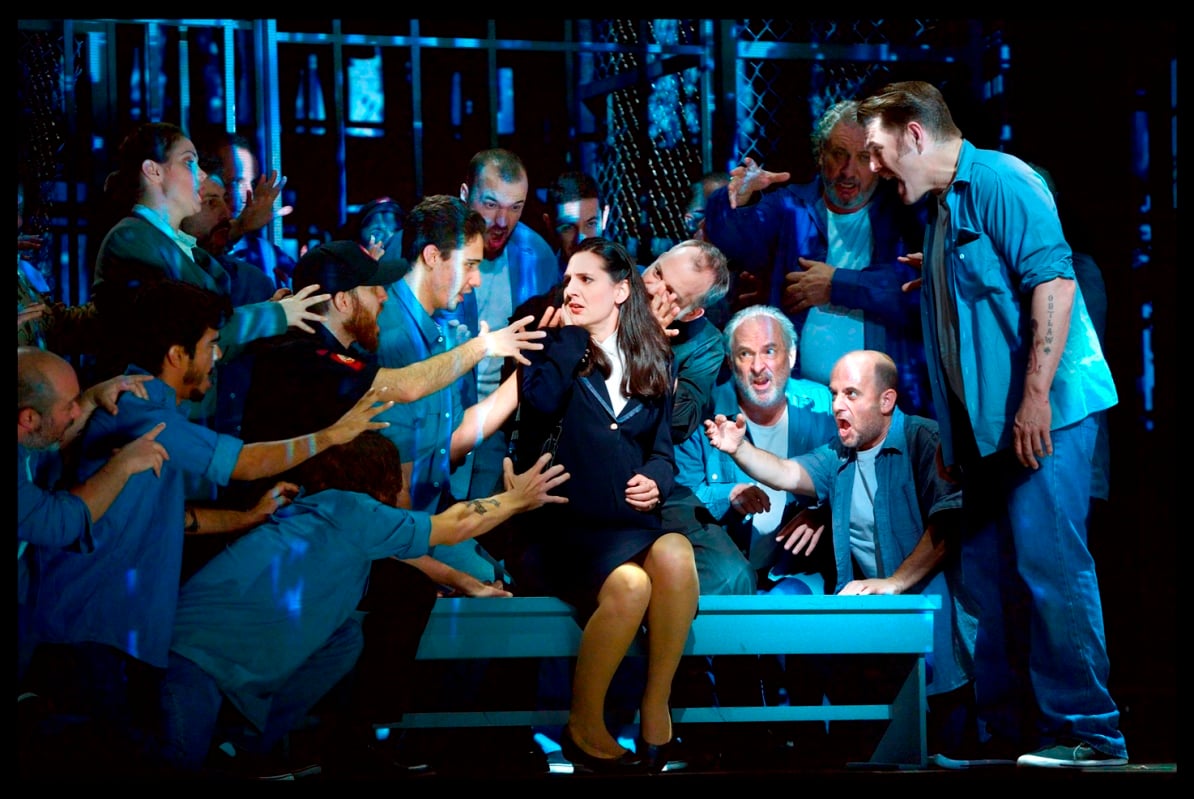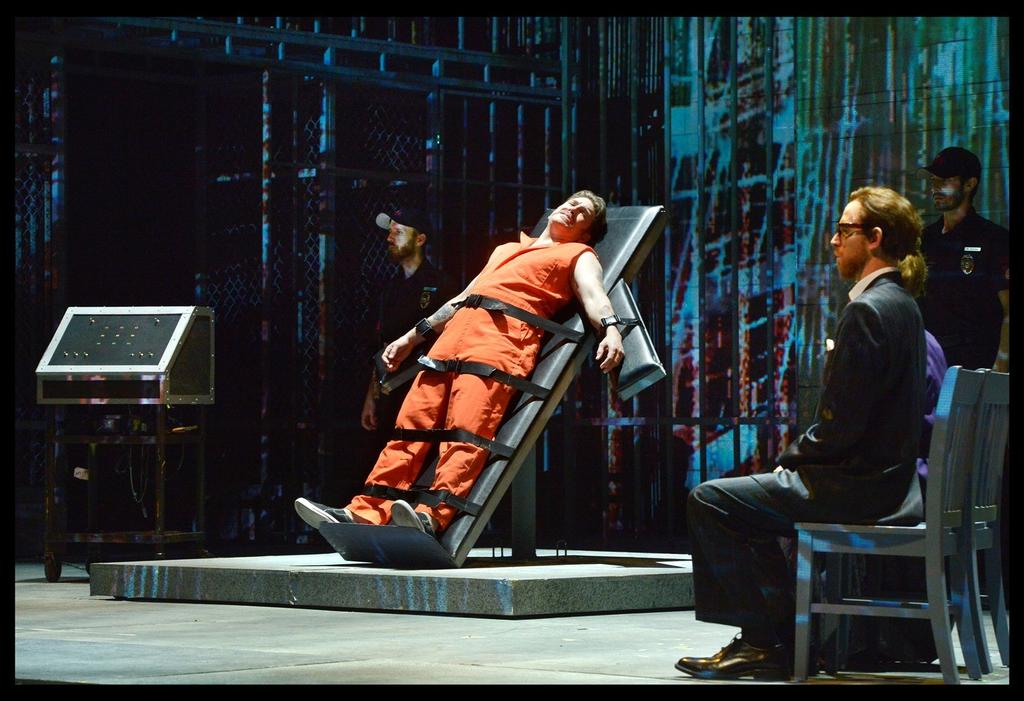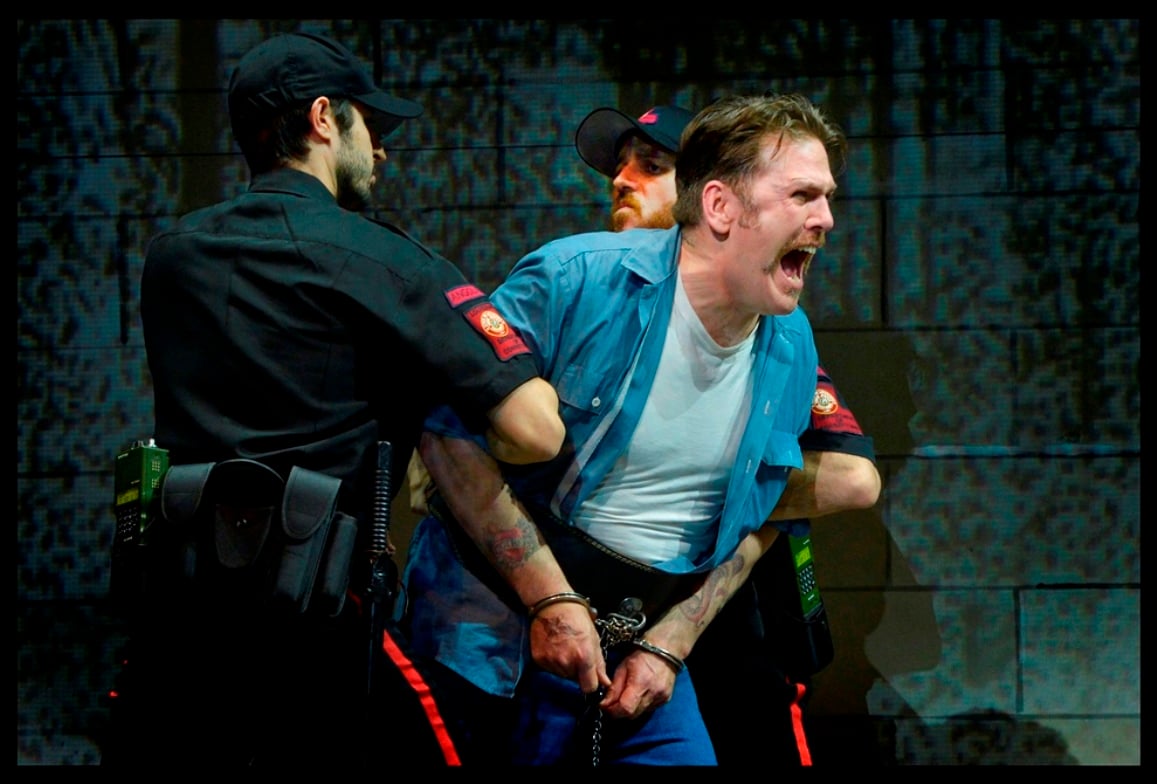The second production of the current season of the Israel Opera was likely the most modern opera ever to have been performed here: its world debut took place in the United States this century, in 2000, after it had been commissioned by the San Francisco Opera.
The opera is based on the book and Oscar award-winning movie of the same name by Sister Helen Prejean, whose true-life experience as the spiritual adviser of a convicted murderer on death row is now depicted in the contemporary opera by Jake Heggie, who wrote this work when he was only 39 years old.
The current production is actually a co-production with the Atlanta Opera, so not surprisingly, most of the talent is American. Most notable are conductor Patrick Summers (who is also artistic director of the Houston Grand Opera), baritone Michael Mayes in the lead role of prisoner Joseph de Rocher and mezzo soprano Maria Lifchak in the role of Joseph’s mother. All are making their Israel debuts.
Virtually all of the other roles were sung by Israelis, including soprano Maya Lahyani in the demanding lead of Sister Helen. Interestingly, Tomer Zvulun, the artistic director at Atlanta Opera and director of this production, is actually also Israeli.
The best performances were turned in by Mayes and Lifchak, as well as baritone Oded Reich in the role of Owen Hart (the father of one of the young murder victims) and bass baritone Vladimir Braun in the role of prison warden George Benton.
Both Reich and Braun have performed numerous times with the Israel Opera.
The orchestra as well was familiar: the opera’s own Israel Symphony Orchestra Rishon Lezion. The usual chorus was all male this time, reflecting the prison population; there was one scene - one of the rare pleasant ones - featuring singing children.
That scene - one of only two in three hours not set within the depressing confines of the penitentiary - was also one of the few in which the music was lyrical.
For the most part, the dialogue (or monologue) is purely conversational, in relentless recitative mode that constantly threatens to send the production over the edge into tedium. It is yanked back only once or twice, by dramatic outbursts on the part of the prisoner or his victims.
While it is a rare treat to hear an opera sung in English, this current run was remarkably short - just over one week. For this reason, all the roles were sung by the same artists every night, not alternating every other performance, as is the norm.




